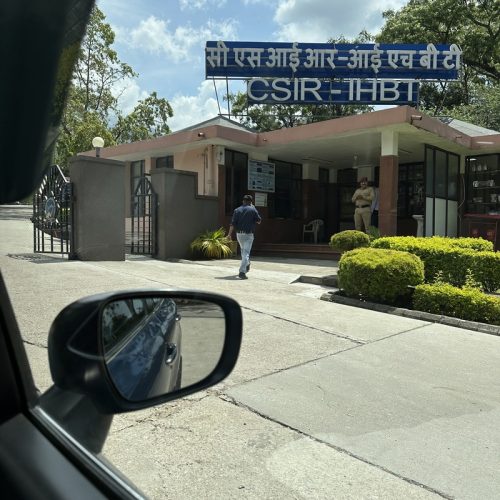CSIR-IHBT is a premier research institute in the Himalayan region, dedicated to exploring the rich bioresources of the area for sustainable development. CSIR scientists conduct cutting-edge research and innovation to harness the potential of Himalayan flora and fauna for various applications, including healthcare, agriculture, and environmental conservation. Explore our work and discover the wonders of the Himalayan bioresources at CSIR-IHBT.

The Council of Scientific and Industrial Research (CSIR) is India’s premier national scientific research organization. It has been conducting research on mushrooms for many years, with a focus on cultivation, nutrition, and medicinal properties.
Some of the key areas of CSIR research on mushrooms include:
- Cultivation: CSIR has developed a number of technologies for mushroom cultivation, including methods for using agricultural waste as substrates, controlling environmental conditions, and preventing diseases.
- Nutrition: Mushrooms are a nutritious food source, rich in protein, vitamins, and minerals. CSIR has conducted research on the nutritional value of different mushroom species, as well as the potential health benefits of mushrooms.
- Medicinal properties: Mushrooms have a number of potential medicinal properties, including anti-cancer, anti-inflammatory, and immune-boosting effects. CSIR is conducting research on the medicinal properties of mushrooms, with the goal of developing new drugs and treatments.
In addition to its research, CSIR also provides training and support to mushroom growers and entrepreneurs. It has established a number of mushroom cultivation centers and training institutes across India.
Here are some specific examples of CSIR research on mushrooms:
- In 2022, CSIR scientists developed a new technology for growing shiitake mushrooms in controlled lab conditions. This technology allows the mushrooms to grow much faster than they would in natural conditions, and it also produces mushrooms with higher levels of Vitamin D.
- In 2021, CSIR scientists published a study on the nutritional value of oyster mushrooms. The study found that oyster mushrooms are a good source of protein, fiber, vitamins, and minerals.
- In 2020, CSIR scientists published a study on the potential anti-cancer properties of shiitake mushrooms. The study found that shiitake mushrooms can inhibit the growth of cancer cells in vitro.
CSIR’s research on mushrooms is helping to make mushrooms more accessible and affordable, and it is also helping to demonstrate the potential health benefits of mushrooms. This research is playing a significant role in the development of the mushroom industry in India.
In which state CSIR is located?
Headquarters Based in New Delhi, CSIR operates a vast network of national laboratories, field stations, and employs numerous scientists, researchers, and support staff.
How many institutes are there in CSIR?
CSIR has a dynamic network of 37 national laboratories, 39 outreach centres, 1 Innovation Complexes, and three units with a pan-India presence.
Is CSIR present in Himachal Pradesh?
CSIR- Institute of Himalayan Bioresource Technology (CSIR-IHBT) is located in Palampur, Himachal Pradesh, dedicated to bioresource research.
Is CSIR supportive in Himachal Pradesh?
Yes, CSIR has been extremely supportive in Himachal Pradesh. When we sought information on mushroom cultivation, their assistance was invaluable.